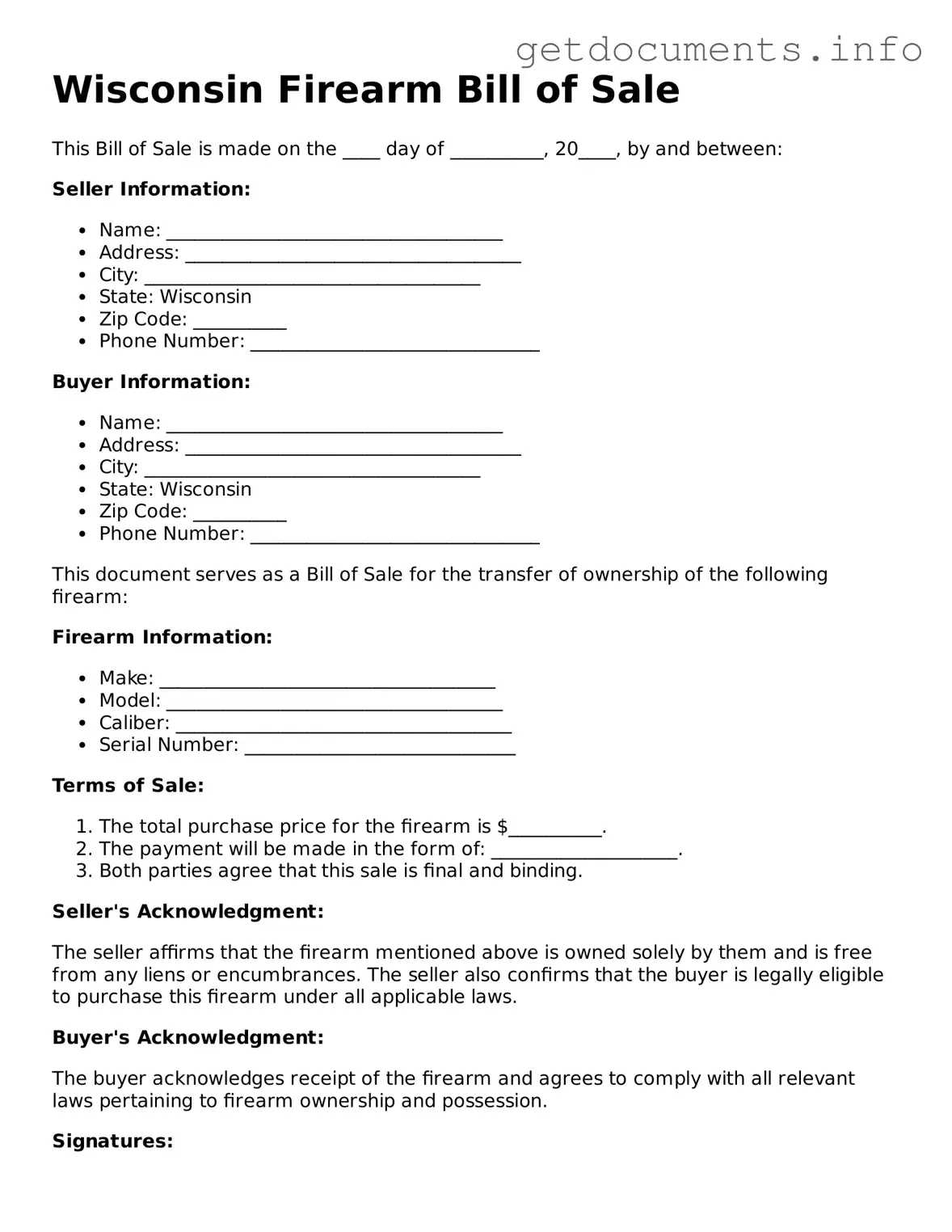Free Firearm Bill of Sale Template for Wisconsin
The Wisconsin Firearm Bill of Sale form is a legal document that records the transfer of ownership of a firearm between a seller and a buyer. This form serves as proof of the transaction and can be important for both parties involved. To ensure a smooth transfer, consider filling out the form by clicking the button below.
Access Firearm Bill of Sale Editor

Free Firearm Bill of Sale Template for Wisconsin
Access Firearm Bill of Sale Editor
Got places to be? Complete the form fast
Fill out Firearm Bill of Sale online and avoid printing or scanning.
Access Firearm Bill of Sale Editor
or
⇩ PDF File
